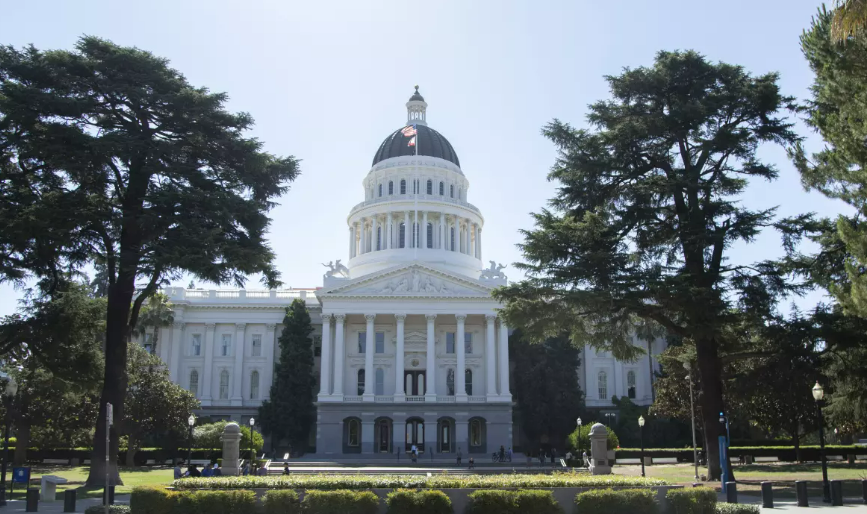LA Times Opinion - Prop 47 Reform is Just a Cell Filler
The Homelessness, Drug and Theft Reduction Act, labeled as "tough on crime," is a "hostile takeover attempt of criminal justice reform."

In November 2014, California voters passed Proposition 47 into law. This action made some non-violent property crimes, where the value does not exceed $950, into misdemeanors. It also made some simple drug possession offenses into misdemeanors. It also provides that past convictions for these charges may be reduced to a misdemeanor by a court.
The stated purpose of Prop 47 was to "ensure that prison spending is focused on violent and serious offenses, to maximize alternatives for non-serious, nonviolent crime, and to invest the savings generated from [the proposition] into prevention and support programs in K-12 schools, victim services, and mental health and drug treatment” and to ensure “that sentences for people convicted of dangerous crimes like rape, murder, and child molestation are not changed.”
Fast forward 10 years later, and despite evidence that crime has fallen in California and nationwide, the "tough on crime" crowd now seeks to roll back the criminal justice reforms gained with the passage of Prop 47. The "Homelessness, Drug Addiction, and Theft Act" would see that certain repeat drug offenses could be prosecuted as a “treatment-mandated felony.” That means the third time someone is arrested for a drug offense, they could be given a choice between jail or mandatory addiction and mental health treatment.. By gutting Prop. 47 and funneling more people into the state’s jails and prisons, the Legislative Analyst estimates the proposed ballot measure would eat away at the savings made resulting from Prop 47 and increase criminal justice costs by as much as tens of millions of dollars per year. That could mean less money for mental health services and addiction treatment.
When you also consider that the premise of this "reform" is based on the premise that drugs are the primary cause of homelessness, and that every homeless person on the street is a criminal, it's clear that this "reform" is misguided and basically a jail cell filler.
The following opinion column, "California’s knock-down, drag-out fight over addiction and theft" by columnist Anita Chabria was featured today in the Los Angeles Times. Excerpts are featured below.
*****
Welcome to the new drug war, same as the old drug war.
I am talking about the Homelessness, Drug Addiction and Theft Reduction Act, a tough-on-crime initiative that just collected enough signatures to show up on California’s November ballot.
But the truth is, the initiative is a hostile takeover attempt of criminal justice reform. You can love the Democrats’ tactic or hate it, but a fight’s a fight and the stakes here are high. The whole thing has to be won or lost by June 27, when initiatives for the ballot have to be finalized.
- It makes a direct connection between the use of “hard drugs,” homelessness and Proposition 47 — the 2014 measure voters passed in response to decades of overcrowding and federal oversight of prisons. But anyone who actually knows anything about California’s homeless population will tell you that drug use isn’t what landed most folks on the street — despite what you see in the most visible encampments. Just ask the growing number of young children on Skid Row, or the alarming numbers of elderly people who are being forced out of stable homes by one illness or economic setback. Not saying we don’t have an ugly fentanyl problem. But not everyone on the street is a criminal.
- It would create a “new class of crime called a treatment-mandated felony.” So people in some cases would either have to successfully complete a court-ordered drug program or go to jail — or even prison. I would absolutely love it if addiction were as simple as forcing people into treatment. But just ask Joe Biden how that works. So this is just a cell-filler. Which is literally what we did during the crack era of the 1980s and 1990s when we put an entire generation of poor Black and brown people behind bars while glorifying the cocaine use of rich folks. Then we dumped all the poor kids in foster care. There’s a de facto racism in which drugs land people in prison and what that means to communities, and it’s ridiculous to do that all over again. Can we just not?
Crime numbers are largely dropping now. And Proposition 47 has put $800 million into diversion and community programs by cutting prison costs.
You can argue the reasons why but the truth is most of us have the perception that there is more lawlessness not matter what the numbers say. We are living in a post-pandemic, anxiety-driven world in which many don’t feel secure — in their homes, their finances, you name it.
Which led to conservative folks seizing on our anxieties to undo criminal justice reform. It’s a huge issue this election cycle because we are in a fentanyl crisis with no easy answers, homelessness is at frightening levels and people keep stealing our Amazon packages. Wrap those in an initiative and you’ve got a winner.
But not a solution.
*****
Read the full opinion column "California’s knock-down, drag-out fight over addiction and theft" on the Los Angeles Times website.










